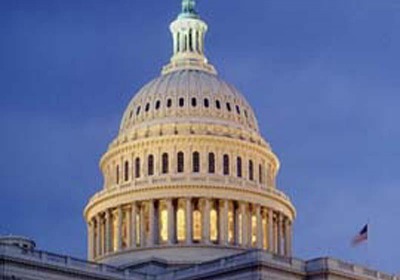Senate releases $350 billion more in bailout money
Fri, 16 Jan 2009The Senate voted Thursday to release a second round of $350 billion in federal aid to rescue financial institutions. The money could be the source of additional loans to automakers, auto finance companies and perhaps suppliers.
An earlier allocation of $350 billion funded the first installments of emergency loans to General Motors and Chrysler LLC. To win senators over, aides to President-elect Barack Obama pledged they will tightly control further use of rescue funds.
In a letter today, Larry Summers, Obama's designee as chairman of the National Economic Council, said the new money would not be used to pursue industrial policy.
Summers said auto companies "will only receive additional assistance in the context of a comprehensive restructuring designed to achieve long-term viability."
The Senate vote today was 52-42 in favor of releasing the second round of bailout money. Under procedures for handling the financial rescue money, no vote by the House of Representatives is necessary.
First-half complaints
The Bush administration has been criticized for its handling of the first $350 billion of rescue money. Officials mainly have invested in banks rather than buying troubled assets, such as securitized mortgages.
Republican lawmakers in particular have complained about the loans to GM and Chrysler to keep the automakers from running out of cash. The administration has committed $13.4 billion for GM and $4 billion for Chrysler, plus another $6 billion to bail out GMAC Financial Services.
The last $4 billion of the total for GM was contingent on release of the second $350 billion. Chrysler says it needs another $3 billion.
The second wave of funding would be the source of loans to Ford Motor Co. if it needs federal money. Ford executives didn't ask for immediate loans but have said they want to be able to borrow as much as $9 billion if market conditions get significantly worse.
The entire $700 billion program is known as TARP, for Troubled Asset Relief Program.
Obama said in a statement that the first part of the rescue plan demanded "too little transparency and accountability'' and failed to loosen enough credit for small businesses and for struggling families.
"My pledge is to change the way this plan is implemented and keep faith with the American tax payer by placing strict conditions on CEO pay and providing more loans to small businesses, more transparency so that taxpayers can see where their money is spent, and more sensible regulations that will protect consumers, investors, and businesses," he said.
Separately, the House considered a bill that could alter restrictions on use of TARP funds, such as tying the GM and Chrysler loans to UAW concessions. Proponents said the measure could help guide the Obama administration in handling the newly released funding. Obama takes office Tuesday, Jan. 20.
By null

